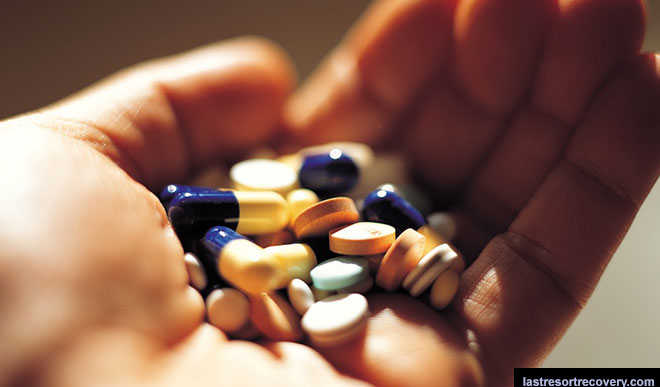
It was psychologically devastating to learnthat 70 percent of pharmaceutical products circulating in Nigeria isfake. This was disclosedrecently at the 90th Annual National Conference of the Pharmaceutical Society of Nigeria (PSN) in Umuahia, Abia state. The disclosure was contained in the keynote address delivered by Andrew Nevin, Financial Services Advisory Leader and Chief Economist Project Blue PWc Nigeria. He said Africa records at least 100,000 deaths annually from drug-related ailments.
Governor Okezie Ikpeazu of Abia State used the same occasion to decry the indiscriminate issuance of product registration numbers by the National Agency for Food and Drug Administration and Control (NAFDAC) for herbal drugs including concoctions. Ikpeazu said “it is amazing to see different concoctions with label from NAFDAC and to an average Nigerian, once you see NAFDAC number on a product, it means a seal of authority”. In his reaction however, NAFDAC’s Director of Special Duties, Abubakar Jimoh, refuted Nevin’s claim saying “it is not evidence-based”. Well, Nigerians in the same vein would similarly require Jimoh’s denial of fake drug prevalence to be evidence-based; supported with statistics.
No time in Nigeria’s recent history was the menace of fake drugs audaciously tackled and efficiently containedas experienced underthe former Director General of NAFDAC, late Professor Dora Nkem Akunyili. She fantastically waged heroic war against manufacturers, distributors and dealers of fake and adulterated drugs; extending hergallantry beyond the borders of Nigeria to countries that include India where foreign coconspirators in the manufacturing and vending of counterfeit drugswere arrested and prosecuted.
Professor Akunyili did not only carry out coordinated raids of warehouses of fake products but also performed publicdestruction ofsubstandard drugs.She became popular for closing down markets believed to be hubs for counterfeit drugs.That celebrated eraended in 2008 with the departure of Professor Akunyili from NAFDAC, after serving for 7 years since 2001.Much of the relative awareness among Nigerians today about expiry date and NAFDAC registration number on drugs is owed to Akunyili.
NAFDAC, as an agency under the Federal Ministry of Health, was establishedby Decree No. 15 of 1993to, among other functions, regulate and control the manufacture, importation, exportation, advertisement, distribution, sale and use of food, drugs, cosmetics, medical devices, chemicals and packaged water. The creation of this agency was informed by the widespread circulation of fake products which at a point made neighbouring countries like Ghana and Sierra Leone to officially ban sale of drugs, foods and beverages from Nigeria. In one incident alone in 1989, over 150 children died as a result of a brand of adulterated paracetamol.
With poor healthcare delivery system in the country where public hospitals and health centers especially in rural communities have become mere consulting centers,poor Nigerians are daily exposed to the hazards of fake drugs. Through the use of adulterated drugs, many indigent but sick Nigerians are left to carry the burden of their ailments, sometimes for many months, without getting better.Subhana-llahi!This group of underprivileged and uninformed Nigeriansspends weeks taking these fake drugs for the treatment of malaria fever, diarrhea, typhoid fever, sore throat, catarrh, or tooth ache, which medication should ordinarily not last for more than a week. Indigent patients are attracted to fake drugs because they are always cheaper. Unfortunately, long period ofusing such fake drugs for treatment havemany times led to complications and eventual death of many Nigerians.
Drug counterfeiting is a deadly phenomenon. Fake drugs are produced with a deliberate intention to defraud consumers through profiteering. Besides being an economic sabotage,fake drugs lead to therapeutic failure and drug resistance. Most fake drugs do not have active ingredientsas usually claimed on the packs. Many also have the wrong ingredients just as most have incorrect quantities of the correct ingredients; making all of themto be branded asfake. Counterfeitdrugs could be manufactured by a quack producer or in collaborationwith a genuine manufacturer. Often, fake drugs are fraudulently mislabeled with respect to identity or source.Other criminal activities of fake drug merchants include re-labeling of expired drugs and the use of wrong substances to prepare drugs.
During Akunyili’s tenure at NAFDAC, shops where powdered grains or substances were coated into paracetamol tablets and ampiclox capsuleswere raided in Onitsha market. Such practices were only a means to wasting patient scarce resources. Indeed, every player in this fake drug business from manufacturers toretailers is better described as a “Lafiya Haram” terrorist who is no less wicked and culpable than a Boko Haram insurgent.
Unfortunately, the penalties prescribed for offenders are not as proportionately severe as the damages caused by fake drugs. This, perhaps, explains the high prevalence of fake drugs in Nigeria’s pharmaceutical markets. While drug counterfeiting is punishable by death in China, it is a prison term of between 3 months to 5 years with an option of fine in the sum of 100,000 in Nigeria.This sanction lacks deterring effect for a “murderer”whose fraudulent activities have killed many sick persons, after improvising them. Federal law makers need tocriticallyreview existing laws on fake drugs.
The alarming statistics of 70 percent as the volume of fake drugs in circulation in Nigeria is too high to be ignored by government. The newly appointed DG of NAFDAC, Professor Moji Christiana Adeyeye, must make NAFDAC regain its lost glory.She has a duty to neutralize existing importation and distribution syndicates. Nigerians expect her to be pragmatic, not a “boardroom” DG at NAFDAC. Fighting fake drugs require the kind of warcurrently being waged against corruption in Nigeria. The Federal Ministry of Health which is the supervising ministry should also give part of the attention devoted to “juicy” agencies like NHIS and NPHCDA for the less “spicy”NAFDAC.
The Nigeria Customs Service needs to strengthen its goods examination procedure toenable it seize all imported faked drugs. The current surveillance activities by the Standards Organization of Nigeria are also required to be intensified.If fake drugs are prevented from finding their ways into medicine stores and shelves, consumers including indigent patientswould have been denied access to such substandard products; saving them from the hazards of fake drugs. May Allah (SWT) guide leaders in government to pull weights together through a rejuvenated NAFDAC andput fake drugs out of circulation in order to save the lives of millions of Nigerians, amin.




